Abstract
Medical language processing (MLP) systems rely on specialized lexicons in order to recognize, classify, and normalize medical terminology, and the performance of an MLP system is dependent on the coverage and quality of such lexicons. However, the acquisition of lexical knowledge is expensive and time-consuming. The UMLS is a comprehensive resource that can be used to acquire lexical knowledge needed for medical language processing. This paper describes methods that use these resources to automatically create lexical entries and generate two lexicons. The first lexicon was created primarily using the UMLS, whereas the second was created by supplementing the lexicon of an existing MLP system called MedLEE with entries based on the UMLS. We subsequently carried out a study, which is the primary focus of this paper, using MedLEE with each of the two lexicons and also the current MedLEE lexicon to measure performance. Overall accuracy, sensitivity, and specificity using the lexicon primarily based on the UMLS were.86,.60, and.96 respectively. Those measures using the MedLEE lexicon alone were.93,.81, and.93, which was significantly better except for specificity; performance using the supplemental lexicon was exactly the same as performance using solely the MedLEE lexicon.
Full text
PDF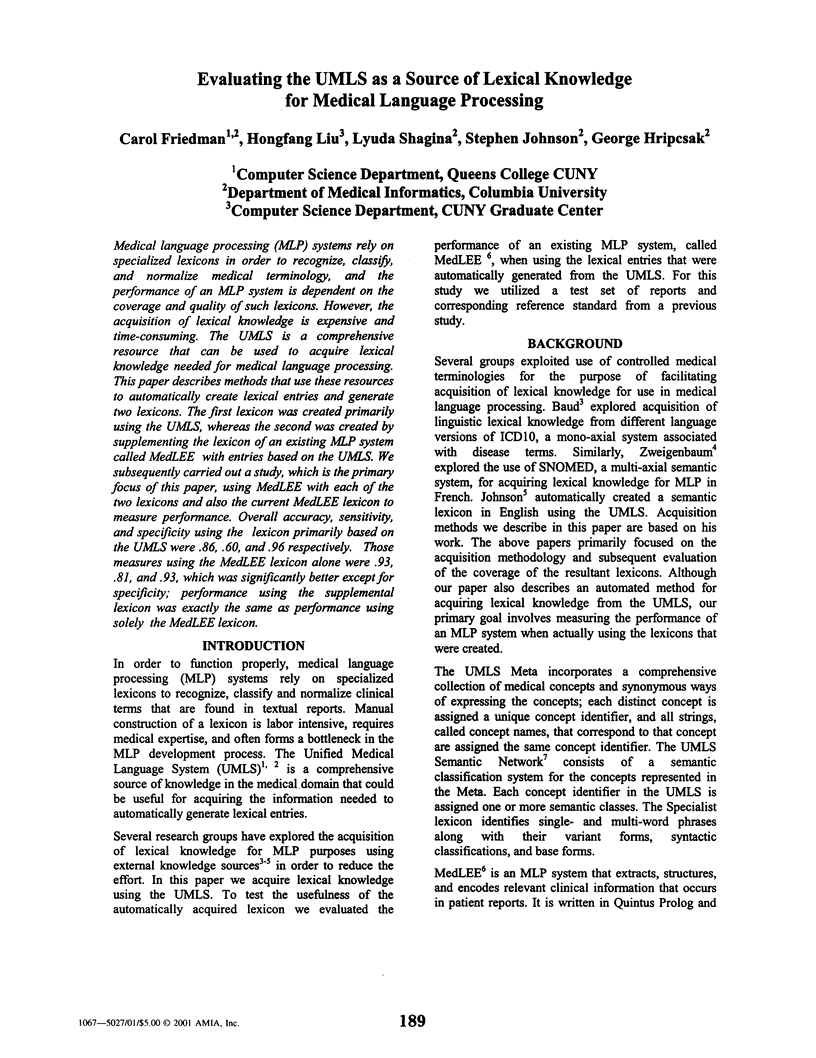
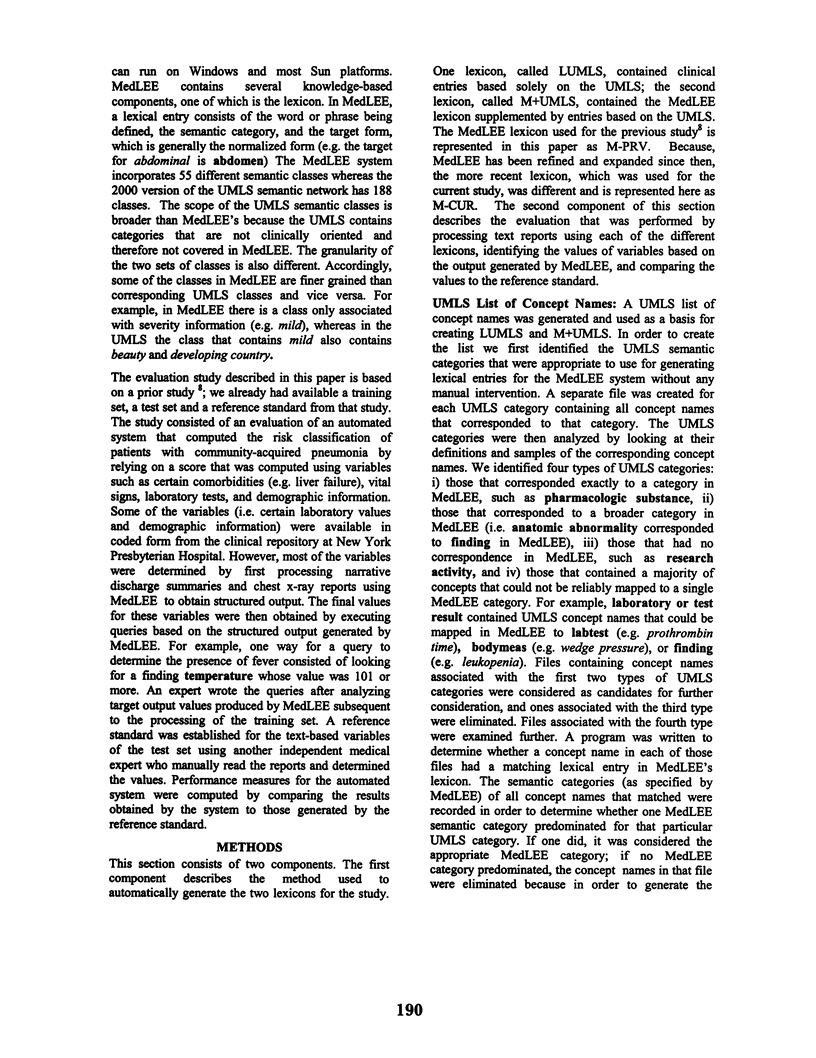
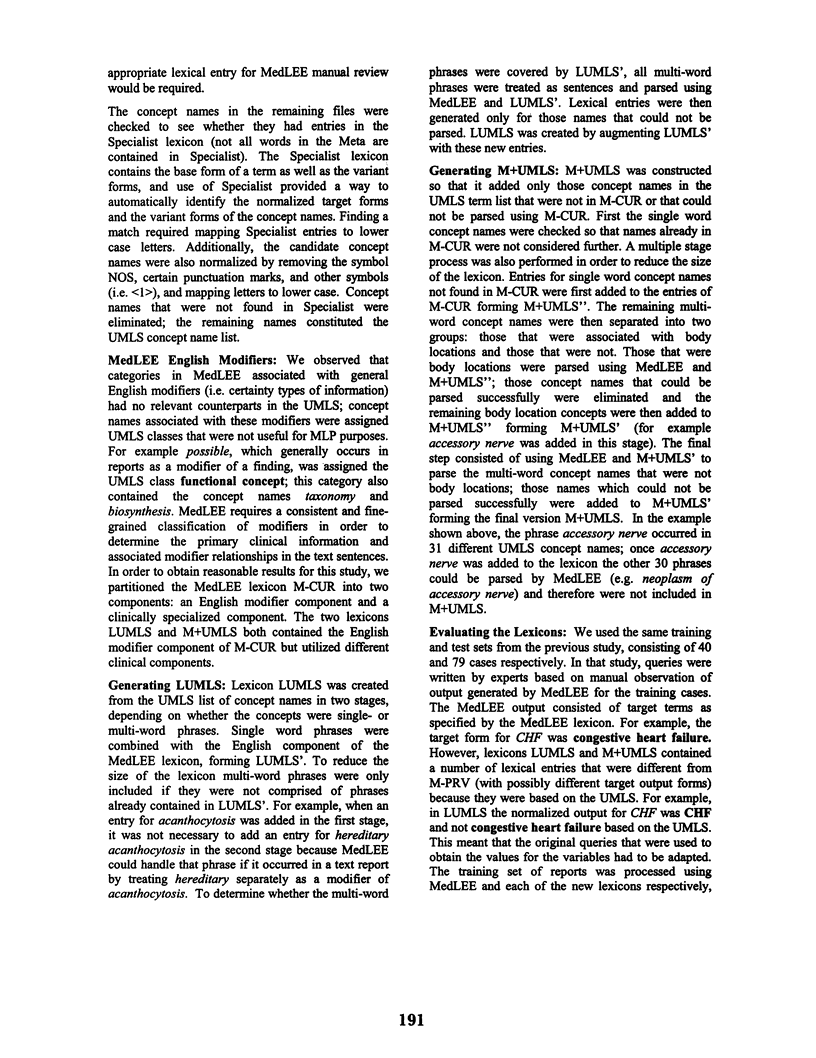
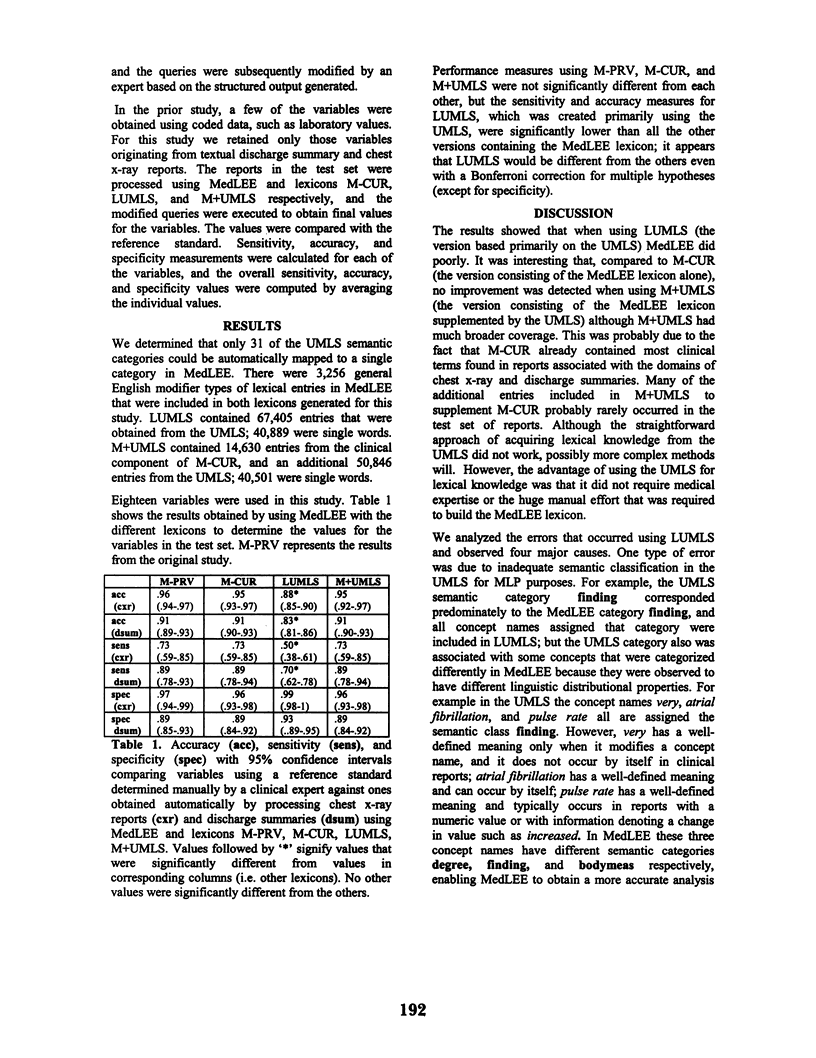
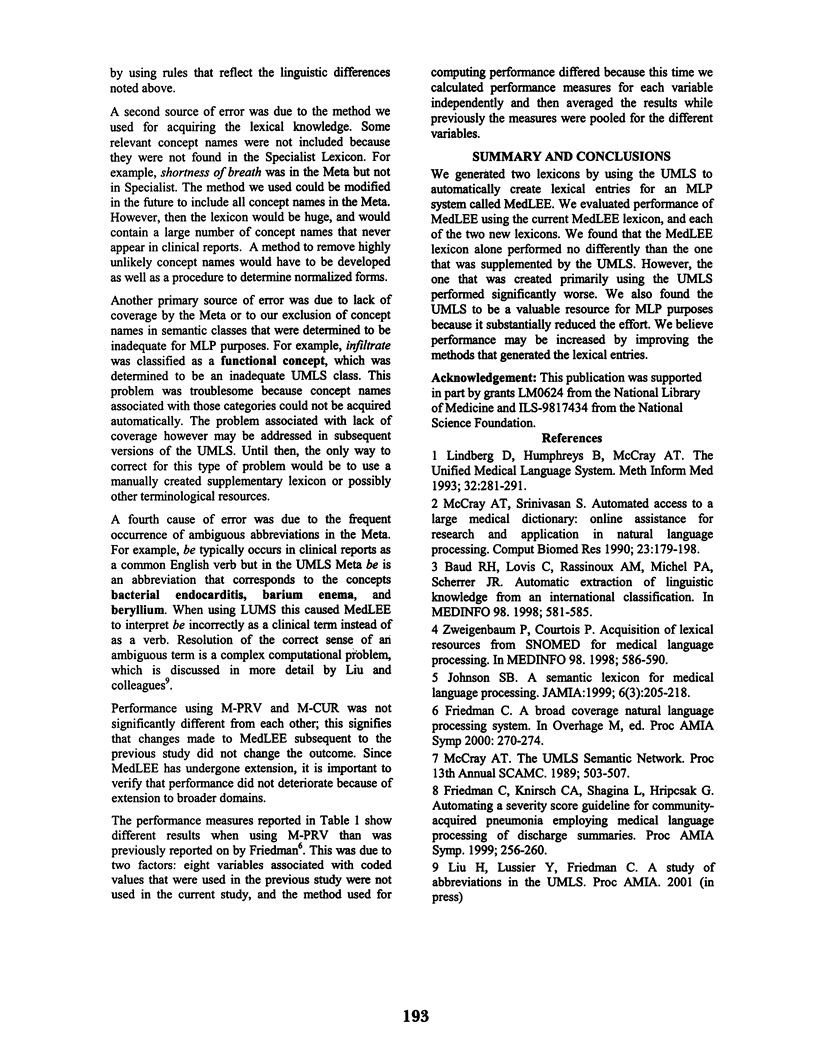
Selected References
These references are in PubMed. This may not be the complete list of references from this article.
- Baud R., Lovis C., Rassinoux A. M., Michel P. A., Scherrer J. R. Automatic extraction of linguistic knowledge from an international classification. Stud Health Technol Inform. 1998;52(Pt 1):581–585. [PubMed] [Google Scholar]
- Friedman C. A broad-coverage natural language processing system. Proc AMIA Symp. 2000:270–274. [PMC free article] [PubMed] [Google Scholar]
- Friedman C., Knirsch C., Shagina L., Hripcsak G. Automating a severity score guideline for community-acquired pneumonia employing medical language processing of discharge summaries. Proc AMIA Symp. 1999:256–260. [PMC free article] [PubMed] [Google Scholar]
- Johnson S. B. A semantic lexicon for medical language processing. J Am Med Inform Assoc. 1999 May-Jun;6(3):205–218. doi: 10.1136/jamia.1999.0060205. [DOI] [PMC free article] [PubMed] [Google Scholar]
- Lindberg D. A., Humphreys B. L., McCray A. T. The Unified Medical Language System. Methods Inf Med. 1993 Aug;32(4):281–291. doi: 10.1055/s-0038-1634945. [DOI] [PMC free article] [PubMed] [Google Scholar]
- McCray A. T., Srinivasan S. Automated access to a large medical dictionary: online assistance for research and application in natural language processing. Comput Biomed Res. 1990 Apr;23(2):179–198. doi: 10.1016/0010-4809(90)90016-6. [DOI] [PubMed] [Google Scholar]
- Zweigenbaum P., Courtois P. Acquisition of lexical resources from SNOMED for medical language processing. Stud Health Technol Inform. 1998;52(Pt 1):586–590. [PubMed] [Google Scholar]


